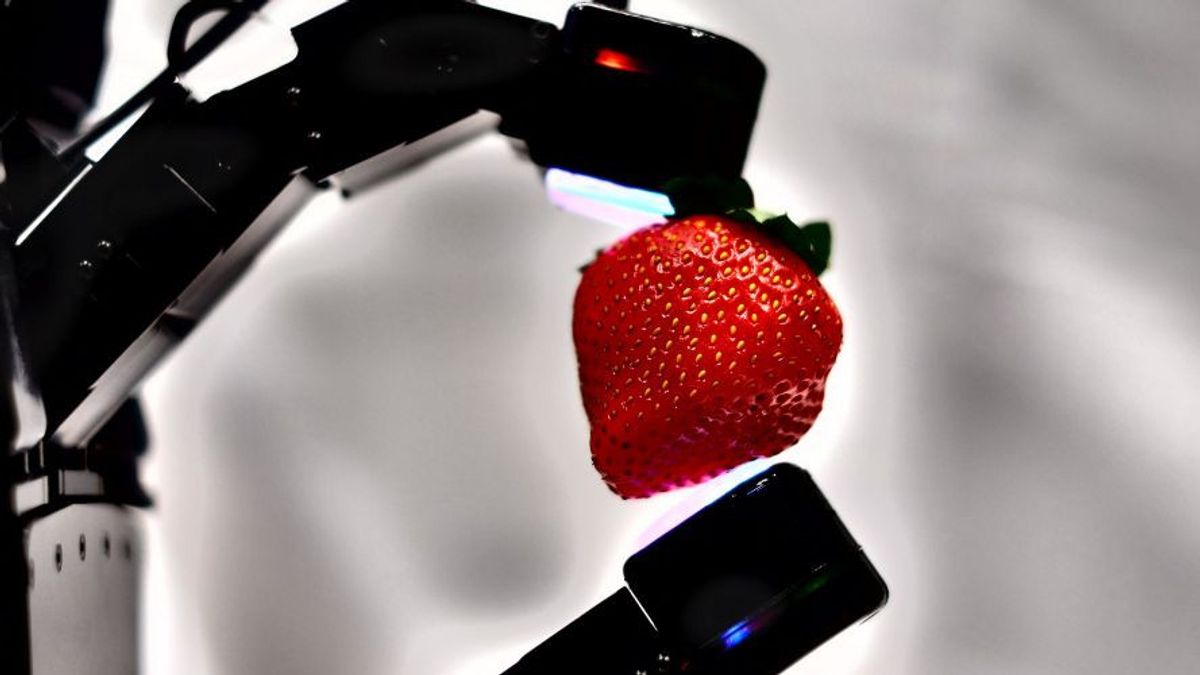JAKARTA - Tactile sensing (touch) is one of the problems that the robotics industry has yet to solve. But Facebook aims to solve this problem with thin synthetic skin for the machine called ReSkin that replicates human-level touch in the physical world.
The company has been dabbling in advanced AI-driven robots for a while. Last year, Facebook opened sourced its work on the DIGIT, a compact tactile sensor designed to be attached to a multi-finger robotic hand.
Tactile sensing is essential to help robot parts perform actions with almost the same level of proficiency as human limbs and solve 'sensory deficits' problems.
Natural receptors in the skin allow humans to sense physical attributes such as temperature, texture, weight, and even the physical state of an object. While the robot part can be armed with audio-visual knowledge using AI-based models, the lack of tactile sensing is what is currently holding back their development.
This learning is critical to Meta, as companies seek to take cues from them while building a metaverse with Augmented Reality (AR), Virtual Reality (VR), and Mixed Reality (MR) experiences.
That's where ReSkin tries to fill the innovation gap. The Facebook AI division of Meta — formerly known as Facebook — has created an inexpensive and durable synthetic skin that is only 2-3mm thick and good enough to carry out more than 50.000 physical interactions.
Synthetic leather is made of a deformable elastomer that is embedded with magnetic particles. The magnetic signals generated by these particles are recorded and then converted into useful data, such as the point of contact and the amount of force applied.
The company claims that ReSkin can detect forces as small as 0.1 newtons in objects as thin as 1 mm. This could be of special utility to agencies like NASA which are currently testing semi-autonomous robots to perform various tasks in space.
One of the biggest advantages of ReSkin is its low price. Facebook Meta's AI division claims that it only costs $6 to produce 100 pieces of ReSkin and that cost can be lowered further with mass production.
Once the coating is worn, it can be easily removed and replaced with a new one. It can also be applied to robotic arms as well as human arms while performing daily tasks to collect critical data for training AI models.
SEE ALSO:
ReSkin is said to serve as an excellent alternative to current sensors which are significantly more expensive, collect less tactile information, and cannot be applied to all mechanical parts.
Facebook AI says that ReSkin can be integrated with other sensors that record visual and audio signals to create multimodal data sets. To demonstrate the efficiency of ReSkin, the experts applied it to a robotic arm that handles soft fruits such as grapes to demonstrate its tactile sensing.
Produced in collaboration with Carnegie Mellon University, this product is open-source and supported by self-supervised learning algorithms to simplify the calibration process. Research data including designs, relevant documentation, code, and basic models will be disclosed to encourage further research and development.
Facebook researchers are taking a similar approach with their Ego4D project which aims to teach AI models using videos shot from a human first-person perspective.
The English, Chinese, Japanese, Arabic, and French versions are automatically generated by the AI. So there may still be inaccuracies in translating, please always see Indonesian as our main language. (system supported by DigitalSiber.id)


















